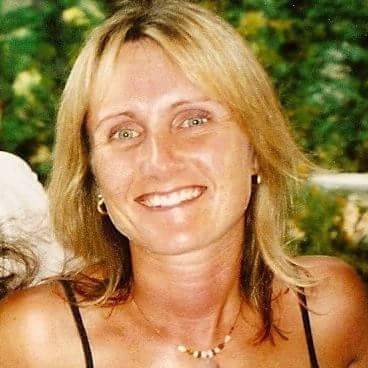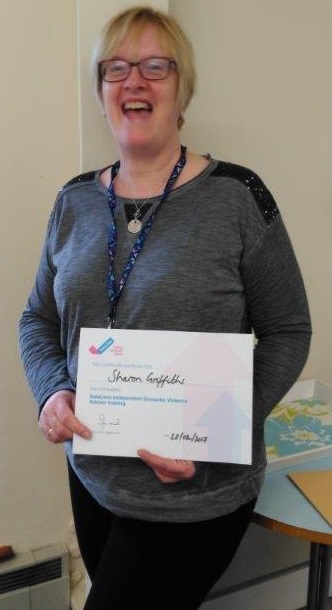4th May 2017
'Honour' and violence against women – what's in a name?
Dr Moira Dustin is a Research Fellow in the School of Law, Politics and Sociology at the University of Sussex. She is currently working on the European Research Council project SOGICA - Sexual Orientation and Gender Identity Claims of Asylum, assessing how fairly asylum claims based on sexual orientation and gender identity are treated across Europe. She has previously worked at the Equality and Diversity Forum, the Refugee Council, and as a freelance sub-editor. She has a PhD in Gender Studies from the London School of Economics where she is a Visiting Fellow at the Centre for Analysis of Social Exclusion (CASE).
For an audio version of this blog, visit our Soundcloud profile or scroll to the bottom of the page.
When talking about preventing gender-based violence, language matters more than it should: the gravity of violence against women and girls is trivialised by references to cat-calling, slut-shaming and pussy-grabbing. And calling pornographic magazines ‘lads’ mags’ suggests anyone who objects to the routine objectification of women is a killjoy who doesn’t understand it’s just a bit of fun.
In the case of so-called honour crimes, there is a particular problem of language for campaigners, service-providers and policy-makers. The word ‘honour’ has mainly positive connotations. By repeating it, there is a danger of reinforcing rather than undermining the idea that there is an honour attached to some forms of violence.
Following this line of thinking, a Private Members Bill in January – subsequently withdrawn – suggested banning the use of the term ‘honour killing’ in official publications. As the Bill’s proponent, Nusrat Ghani MP, pointed out ‘language matters’. She went on to argue that
The use of the term “honour” to describe a violent criminal act—sometimes committed against a man, but more often against a woman—can be explained only as a means of self-justification for the perpetrator. It diminishes the victim and provides a convenient excuse for what in our society we should accurately and simply call murder, rape, abuse or enslavement.[i]
The problem with ‘honour’ has been widely recognised: by the CPS (‘There is no, and cannot be, honour or justification for abusing the human rights of others.’); by the United Nations (‘I do not even wish to use the phrase ‘honour killing’: there is not the faintest vestige of honour in killing a woman in this way’); and by women’s organisations (‘As we at Southall Black Sisters have proclaimed in our campaign slogans: There is no honour in such violence, only shame’).[ii]
So why did 66 experts and survivors write to Nusrat Ghani opposing her Bill? Precisely because they recognise that language matters. They point out that progress in ending ‘honour’ based violence has been made by using this particular term, and developing expertise and support around it.[iii] Moreover, the wording is used globally, including in international instruments that can usefully be cited in the UK. Perhaps most importantly, the term is understood in the communities where such violence occurs, where it is ‘owned’ by survivors.
The letter writers – representing organisations ranging from the Iranian and Kurdish Women’s Rights Organisation, to Southall Black Sisters, to End Violence Against Women – convincingly show why the unhelpful positive connotations of the word ‘honour’ are less important than the role it has in organising people and policies in a particular area of gender-based violence that primarily affects women from minority ethnic communities in the UK.
I have a different concern with the use of ‘honour’ but which is also related to how violence is labelled, which is that the term is not always applied with sufficient specificity. The label ‘honour’ has been applied to a range of crimes including forced marriage and female genital mutilation in a way that separate them out from ‘mainstream’ violence against (white) women and implies they are a different phenomenon with different motives. Forced marriage, ‘honour’ crimes and Female Genital Mutilation (FGM) are routinely grouped together as a single strategy or area of policy when often the only common feature of these abuses is that the victims are from a minority ethnic community.[iv]
Similarly troubling is the conflation of ‘honour’ violence with terrorism in a way that confuses strategies on extremism action to protect women and girls: in her first Prime Minister’s Questions last July, Theresa May said:
"Extremism does take many forms. That is why, in the Government’s counter-extremism strategy, we are looking very widely across the breadth of issues of extremism, including tackling the root causes of some practices within communities, such as so-called honour-based violence. I absolutely agree with her that there is absolutely no honour in so-called honour-based violence. It is violence and a criminal act, pure and simple.[v]"
It may appear petty-minded to criticise the Government for finally acknowledging and trying to stop violence against minoritised women and girls. But by attributing a range of different offenses to a single motive – the culture of shame and honour among minorities in the UK – the real and more complex causes are disguised and both perpetrators and victims are deprived of agency.
A better model does exist and there has been much success in recent decades in calling violence against women what it is – a human rights abuse. This approach has been led by women’s organisations, including those mentioned above, working separately, but also coming together to inform policy and hold government and parliamentarians accountable.
Returning to the problem of terminology, one must work with the tools that are to hand. In the short term, the dilemma will in all likelihood continue to be resolved by the distancing mechanism of using quotation marks – referring to so-called ‘honour’ killings and ‘honour’ based violence. In the longer term, it is to be hoped the question will become redundant along with this particular form of violence against women.
[i] https://hansard.parliament.uk/commons/2017-01-31/debates/7CF70A7D-13DB-4...(AggravatedMurderOfAndViolenceAgainstWomen)
[ii] http://www.cps.gov.uk/legal/h_to_k/honour_based_violence_and_forced_marriage/#a04
http://www.un.org/apps/news/story.asp?NewsID=47907#.WP5JolLMx_U
https://www.opendemocracy.net/5050/pragna-patel/use-and-abuse-of-honour-based-violence-in-uk
[iv] The HM Inspectorate of Constabulary website states that ‘HBV [Honour-based violence] incidents and crimes include specific types of offence, such as forced marriage (FM) and female genital mutilation (FGM), and acts which have long been criminalised, such as assault, rape and murder. We use HBV to refer to the full range of incidents and crimes which perpetrators carry out under the guise of maintaining or protecting perceived ‘honour’. https://www.justiceinspectorates.gov.uk/hmic/our-work/so-called-honour-b...



 Sharon: I’ve been working with victims of domestic abuse for about ten years. I started as a volunteer with Victim Support, working with victims of domestic and sexual abuse. I then became the Women’s Safety Worker at the probation service for two years, and I joined Plymouth Domestic Abuse Service as an Idva in April 2014.
Sharon: I’ve been working with victims of domestic abuse for about ten years. I started as a volunteer with Victim Support, working with victims of domestic and sexual abuse. I then became the Women’s Safety Worker at the probation service for two years, and I joined Plymouth Domestic Abuse Service as an Idva in April 2014.